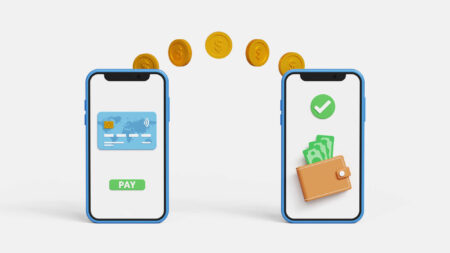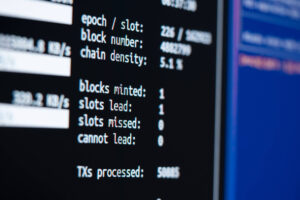Cardano is a decentralized public blockchain and cryptocurrency project that is completely open source. It focuses on scalability, security, and sustainability, and uses a proof-of-stake consensus mechanism.
The company describes its blockchain platform as the first to be developed with a "scientific philosophy and research-driven approach." According to Cardano, its development team consists of a large global collective of engineers and researchers. The project was initiated in 2015 by Charles Hoskinson.
The Cardano blockchain
Cardano is developing a smart contract platform for transaction processing and the development of decentralized applications (Dapps). Instead of the energy-intensive Proof-of-Work (PoW) method, Cardano uses the Proof-of-Stake (PoS) consensus mechanism. The native ADA token, named after mathematician Ada Lovelace, serves as the cryptocurrency for all basic transactions on the Cardano blockchain. ADA performs various functions, including transaction processing, network security through staking, and voting as a governance token.
Similar to Ethereum, various applications are possible on Cardano, including decentralized finance (DeFi) and NFTs. The platform uses a layered architecture that separates settlement from computation, providing flexibility and adaptability. Cardano uses the Haskell programming language, which distinguishes it from EVM-compatible blockchains that use Solidity.
Cardano's founding history
Cardano's development and ICO began in 2015 under the leadership of Charles Hoskinson, a co-founder of Ethereum. Hoskinson left the Ethereum development team due to disagreements with Vitalik Buterin and Ethereum's strategic direction, and launched Cardano. The Cardano ICO was conducted in four phases, starting in September 2015 and ending in January 2017, raising approximately $62 million. Today, the Cardano Foundation is headquartered in Zug, Switzerland.
The network is supported by three entities: IOHK, the Cardano Foundation, and Emurgo. IOHK, founded by Charles Hoskinson and Jeremy Wood, contributes to the development of Cardano. The Cardano Foundation is a non-profit organization focused on core development and ecosystem growth, while Emurgo serves as the marketing arm for Cardano-related projects.
Cardano's five development stages:
- Byron
The bootstrap era, where the network is run by designated peers and block rewards are burned. - Shelley
The decentralization optimization phase, where protocol development remains centralized. - Goguen
The phase of providing sidechain and smart contract capabilities. - Basho
The era of optimizing to improve the scalability and interoperability of the network. - Voltaire
The final phase of implementing a financial and governance system
The Voltaire era is the final milestone of the Cardano roadmap, necessary to make the network self-sustaining. With the introduction of a voting and financial management system, network participants will influence the future development of the network with their participation and voting rights.









